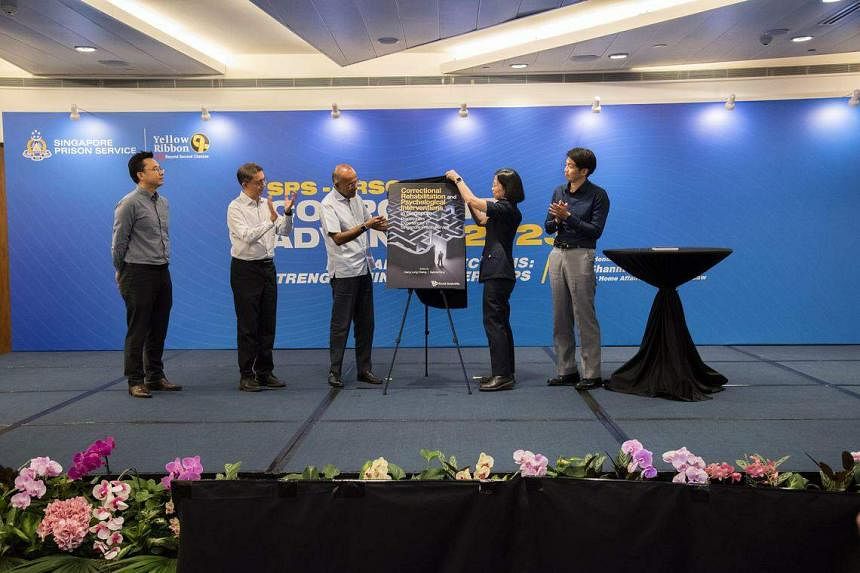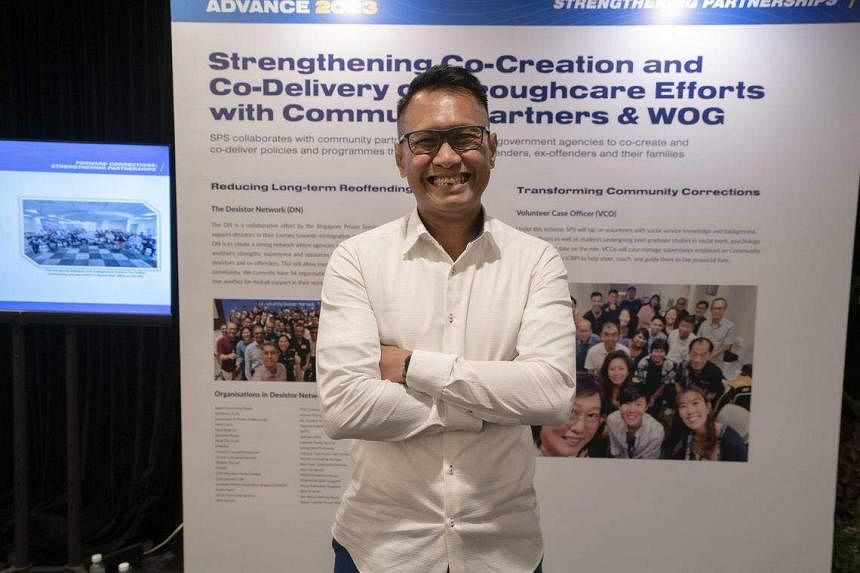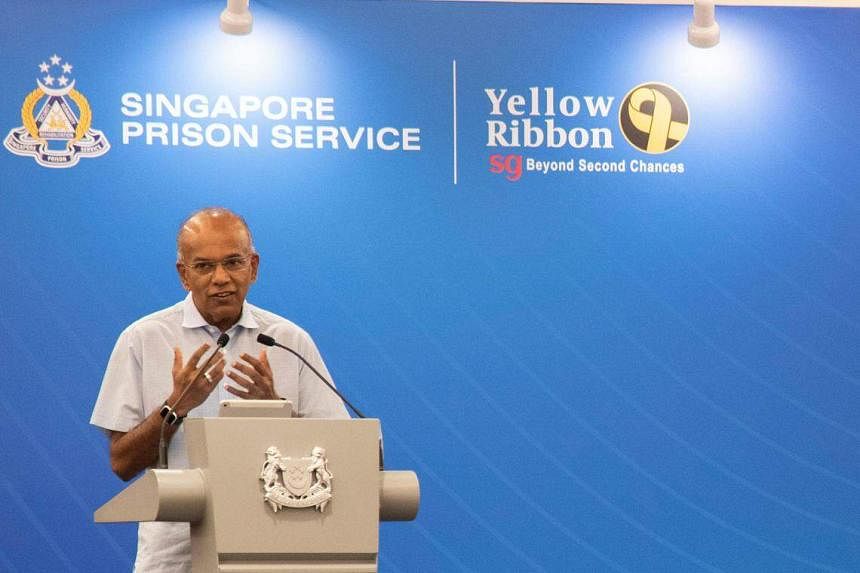SINGAPORE - More help is on the way for former offenders looking to integrate back into society and take more ownership of their careers, as the nation seeks to lower the number of reoffenders.
Minister for Home Affairs K. Shanmugam said on Wednesday that efforts by the Singapore Prison Service (SPS) and Yellow Ribbon Singapore (YRSG) have resulted in the country achieving one of the lowest two-year recidivism rates in the world.
“Having gotten the two-year recidivism rate stable, we want to bring it down further,” said Mr Shanmugam, who is also Minister for Law, to around 600 people at the SPS-YRSG Corporate Advance 2023 at Suntec Singapore Convention and Exhibition Centre.
He was joined by Minister of State for Home Affairs and National Development Muhammad Faishal Ibrahim.
Bringing down Singapore’s five-year recidivism rate, however, has been more challenging, Mr Shanmugam said.
It has remained at around 40 per cent for the past decade.
“We have to see how we can break the cycle of reoffending, and I think one of the ways is to try and give support for ex-inmates over a longer period.”
The minister also helped launch a book, titled Correctional Rehabilitation And Psychological Interventions In Singapore: Practitioners’ Experience In Singapore Prison Service, on Wednesday.
Mr Cheng Xiang Long, principal psychologist at SPS’ psychological and correctional rehabilitation division, said the book will shine a light on how the rehabilitation landscape has evolved over the years.
“Our work in the prison systems is rather well received by our international counterparts.
“We are increasingly moving from just learning from other countries to sharing what we do,” he said.

SPS also unveiled a new volunteer case officer (VCO) scheme on Wednesday.
The new initiative will enlist volunteers to act as supervisors, to provide case management support for community-based programmes.
These volunteers will be trained by SPS staff, and each eligible volunteer will support up to four former offenders for at least a year. Fifty VCOs are already on board.
Ms Jean Chiang, a deputy director at SPS, said the VCOs will guide their charges to a smoother integration back into life after imprisonment, and also help to expand their support networks.
“(The VCOs) are there to talk through and support the ex-offenders, especially those struggling to adapt after coming out of prison,” she said.
SPS and YRSG also showcased joint initiatives to support the career progression of former offenders, including the TAP (Train and Place) and Grow scheme.
YRSG piloted the scheme in 2019, partnering with employers, trade associations, training institutions and community partners to establish learning academies inside prison.
Those in the scheme will be able to undertake a partial training sponsorship that allows them to progress in selected industries.
The initiative was launched in three industries – precision engineering, media and logistics. Over 420 inmates have completed the training programmes since 2019.
Mr Shanmugam said that as at April, trade associations and employers have pledged around $220,000 to support the initiative.
In 2023, the scheme will be expanded to include the food services sector, with around 700 inmates expected to benefit.
Mr Safari Ahmad, 55, a volunteer who helps counsel inmates and reintegrate them back into society, said the new initiatives will be “very helpful”.
When former offenders return to society, they experience culture shock, he said. “Some people in society also cannot integrate and engage with (ex-offenders) in the workplace.”

The former offender spoke about his own experiences with career-related programmes during his time in prison, and how they taught him to improve himself and actively change his life for the better.
“Until now I still practise what I learnt – that we need to take courses, plan our goals and achieve them. Some of my goals were to get married, to buy a house,” he said.
“Now I have a wife, I have a family, I have a house and I have better jobs. The counselling that I went through really gave me the confidence to... achieve what I’m achieving today.”

